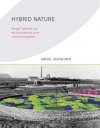![Hybrid Nature Hybrid Nature]()
Click to have a closer look
About this book
Biography
Related titles
About this book
Biological sewage treatment, like electricity, power generation, telephones, and mass transit, has been a key technology and a major part of the urban infrastructure since the late nineteenth century. But sewage treatment plants are not only a ubiquitous component of the modern city, they are also ecosystems – a hybrid variety that incorporates elements of both nature and industry and embodies multiple contradictions.
In Hybrid Nature, Daniel Schneider offers an environmental history of the biological sewage treatment plant in the United States and England, viewing it as an early and influential example of an industrial ecosystem. The sewage treatment plant relies on microorganisms and other plants and animals but differs from a natural ecosystem in the extent of human intervention in its creation and management. Schneider explores the relationship between society and nature in the industrial ecosystem and the contradictions that define it: the naturalization of industry versus the industrialization of nature; the public interest versus private (patented) technology; engineers versus bacterial and human labor; and purification versus profits in the marketing of sewage fertilizer.
Schneider also describes biotechnology's direct connections to the history of sewage treatment, and how genetic engineering is extending the reaches of the industrial ecosystem to such "natural" ecosystems as oceans, rivers, and forests. In a conclusion that shows how industrial ecosystems continue to evolve, Schneider discusses John Todd's Living Machine, a natural purification method of sewage treatment, as the embodiment of the contradictions of the industrial ecosystem.
Customer Reviews
Biography
Daniel Schneider is Professor in the Department of Urban and Regional Planning and an ecologist for the Illinois Natural History Survey at the University of Illinois at Urbana–Champaign. His work on the history of ecology has been awarded the Price/Webster Prize by the History of Science Society.
By: Daniel Schneider(Author)
376 pages, 26 b/w photos, 7 b/w illustrations
"Hybrid Nature takes what appears to be a mundane subject – sewage – and a little understood technology – sewage treatment – and tells a fascinating story about what is 'natural' and what is 'artificial' in our lives. Daniel Schneider provides a very fresh look at industrial ecology, and how we must look with new eyes at the processes and inventions that directly affect us. This is environmental history at a close-up level, but with much broader and wider implications."
– Martin V. Melosi, Hugh Roy and Lillie Cranz Cullen University Professor and Director of the Center for Public History, University of Houston; author of The Sanitary City
"Daniel Schneider illuminates important controversies in the history of the environment and the history of science and technology, such as the natural versus artificial, craft approaches versus approaches derived from science, operators versus technicians, and struggles over conflicting goals of profit or purity. I know of no study that deals with the issues of urban waste renewal and sewage with the sophistication and depth reflected in this book."
– Joel Tarr, Richard S. Caliguiri Professor of History and Policy, Department of History, Carnegie Mellon University
"Intriguing, wide-ranging, and often, disturbing. Their Victorian discoverers predicted that the sewage saprophytes would become the slaves of a new empire; Schneider shows how profoundly that has come to pass."
– Christopher Hamlin, Professor of History, University of Notre Dame






































